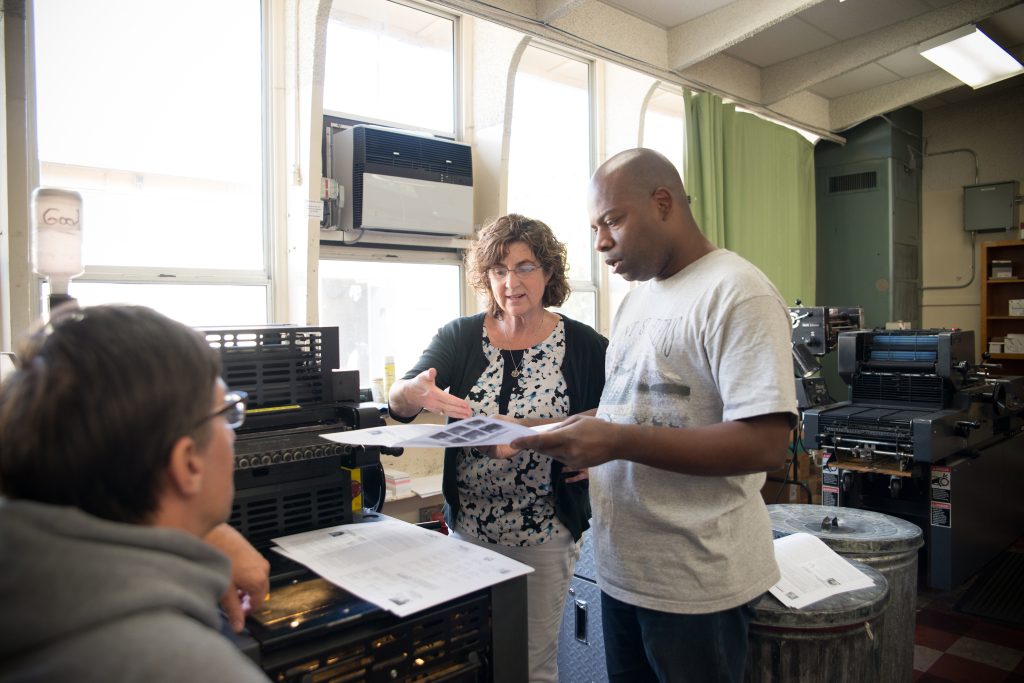Adult education offers key support for adults with disabilities

For someone like Kathy Harris, who says she has been a teacher “for eons,” sometimes the smallest victories can feel like the biggest.
Harris works with adults with developmental disabilities in the graphic arts program at A. Warren McClaskey Adult Center in Sacramento. Some of her students are so knowledgeable they can teach her about the computers and equipment. But, for others, the goal is simply to master the most basic skills of living on their own or functioning in a workplace.
To the person at the head of the class, it’s the small moments that provide the payoff.
“It’s just that moment when someone gets it,” Harris says. “Whatever ‘it’ is. It’s that moment when the light bulb goes on.”
“To see [a student] blossom was so rewarding.”
Kathy Harris
Adult Education Teacher
The graphic arts and recycling programs are the first major pieces in what is planned to be a diverse CAERC program for adult learners with disabilities.
Dr. Sue Gilmore, Principal at McClaskey, says the regional approach of CAERC will allow the schools to make some educational offerings more widely available while centralizing some programs to avoid duplication.
“I don’t think we ever sat down with all the players as a region before,” Gilmore says. “Each district never really paid attention to what was going on in the other districts, to consider, ‘Why don’t we have this program or that program?’”
The goal is for coordination to result in efficiency.
“For example, one thing we really want to do is for everyone to have the same assessment forms,” Gilmore says. “So when students move – and the population we serve tends to move a lot – we would already have the data for that person.”
When it comes to the program for adults with disabilities, Gilmore says that while the specific skills of graphic arts and recycling are being presented, the primary benefits are teaching skills that can be applied to any job.
For example, “getting to work on time, phoning when you’re not going to make it, how to get along with your co-workers and your employer,” Gilmore says.
Harris spoke of one student who came to the program with a certificate from a local community college but “because of some issues he had, found it very difficult to find his way in the world.”
He was put to work in the school office, learning basic work skills like multitasking and dealing with customers.
“To see him blossom was so rewarding,” Harris says.
For more information, visit www.capitaladulted.org.
Written by Matt Jocks
| Regions | Classes & Topics |
|---|---|
| Northern California | Careers in Business-Technology |